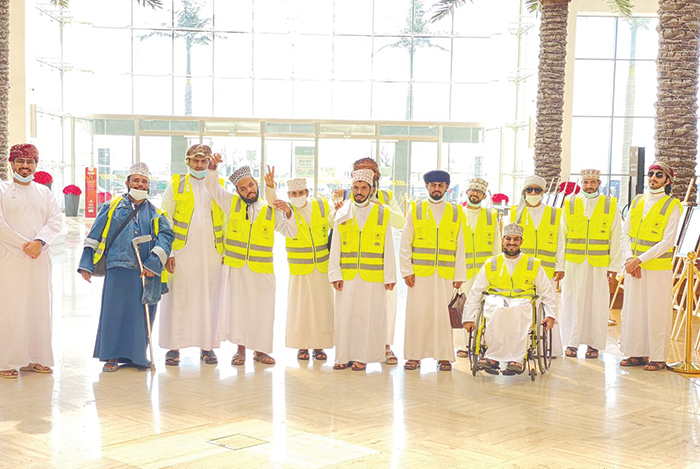
Muscat: A group of 26 students with disabilities are being provided a range of skills to help them succeed and integrate into workplaces.
As part of the training, students will be provided essential attributes such as soft skills, finance, and marketing, all of which are needed at the workplace. They are also taught English, skills for coached in interview, provided access to technology that will help physically challenged people perform better at work, and are also given experience at companies willing to take them on board and provide them a real-life work place.
Jointly organised by Gulf College and Al Jisr Foundation, plans are already underway to expand and hold the training programme at least once a year. A majority of the students have hearing impairments, while the rest have either visual or motor disabilities. Special learning aids, such as large font sizes, using graphics to share information, and allowing students to take their exams separately were organised.
“When the students finish their studies, they will get two options based on their performance: they can either start their own businesses, or join the private sector. As part of the course, students will receive support to make an appropriate decision,” said Dina Al Khalili, general manager for Al Jisr. “We will provide students with the support to start their own business by bringing their working capital to a minimum through businesses and digital incubators.”
“The college premises offer students with small offices with facilities to start their business and operate from the incubators available for at least two years,” she added.
“The students will be saving on pre-operating and operating costs such as office rent, utilities, staff training, marketing expenses, and administrative expenses.”
Under policies adopted by Ministry of Labour, government and other public sector employers must employ at least 50 disabled people to fill up to two per cent of their workforce. Hiring a disabled worker also counts as two persons towards Omanisation quotas for the private sector.
Further measures are being looked at, in collaboration with the United Nations Committee on the Rights of Persons with Disabilities, including issuing laws on reasonable accommodation, and providing data on persons with disabilities currently employed in the open labour market, distributed by age, gender, type of impairment, and geographical location.
“Teaching students with disabilities is full of challenges,” said Dr Ali Al Badi, deputy dean for Academic affairs and Research at Gulf College.
“We conducted many workshops and staff development sessions to help them engage students with disabilities. The students ought to have full participation, regardless of their physical, intellectual, social, emotional, linguistic, or other needs.”
“The college also involved the family members to overcome some of the challenges. There are many challenges related to students’ backgrounds such as cultural, economic, social, and educational differences, ability to use the technology, soft skills, confidence levels, and adequate facilities,” he added.
More needs to be done to raise awareness about, and work against social stigmas, towards people with disability, say the two organisations, particularly in the case of those who have psychosocial or intellectual challenges.
Campaigns of this nature need to be run in collaboration with community and religious leaders, government officials, and media organisations, and need to be shared widely with people in the country.
They have also called on companies to do more to encourage acceptance of disabled people, as part of their corporate social responsibility plans. “Merely addressing disabilities in companies’ values and norms is not enough, they have to incorporate this issue further into their corporate culture, policies and work environment,” said Al Khalili.